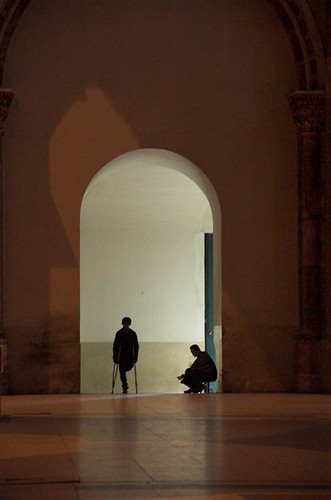
I recently got an email from a reader frustrasted by how little he has learned after 30 years of being a donor to international developement causes. With his permission, I am posting our email exchange here:
The letter
I have been giving to aid organizations such as Oxfam America and Trickle Up for over 30 years. Yet my thinking has not benefited from 30 years of direct feedback. I have no independent means of hearing from the people served by these organizations.
Recently, it occurred to me that I should focus on a single region in a particular country where there is a program in place. I would see if I could develop direct relationships with people in that region. Then I would be exposed to different perspectives.
Is it plausible to think that using modern forms of communication, I might be able to form lasting long-term relationships that would give me a useful, local perspective on various aid efforts?
I am also wondering if a problem such as malaria might offer a way to partner with others who are working in the target region.
Are these sorts of relationships for two-way learning and long-term problem solving possible? Can individuals learn from each other and not have the learning mediated by the media or aid organizations?
My Answer
You’re up against one of the most frustrating situation for a committed donor: it feels like throwing your money down a well sometimes. You can’t tell if things are changing because they change so slowly, and when they do change you can’t tell how much of it was because of you. I think that feeling is a big part of what drives the current trend toward randomized controlled trials on international development interventions.
In terms of connecting with people who actually interact with aid programs, I think the answer is a qualified yes. Most of the developing world is rapidly coming online and using social media in particular. People are using the internet even when they don’t have water or consistent electricity.
However, the question that comes to mind for me is: what’s in it for them? What is the motivation for a 22-year-old Malawian to communicate with you about aid programs and their impact on her life? You would benefit from getting a local perspective on where your money goes, but how does your dialogue partner benefit? Their time is valuable and internet access is not free – why should they spend that on you?
If you can find a way past that hurdle, then I think yes, interpersonal learning is completely possible.
One final thought for you – are you familiar with the work of GiveWell.org? I don’t agree with all their conclusions, but they do an excellent job of identifying organizations that perform, and share, genuine impact evaluations. You might consider shifting your giving to such an organization.



